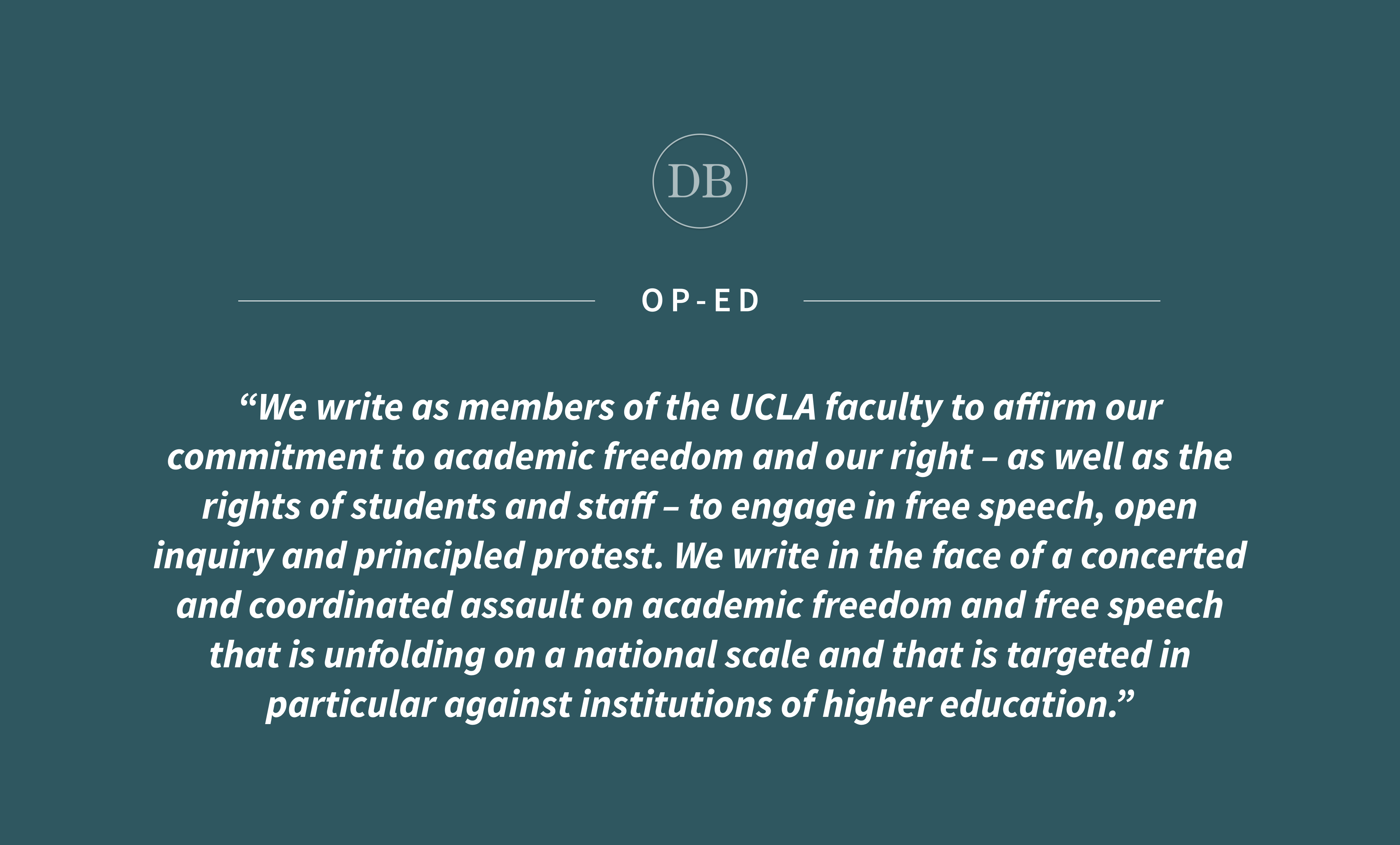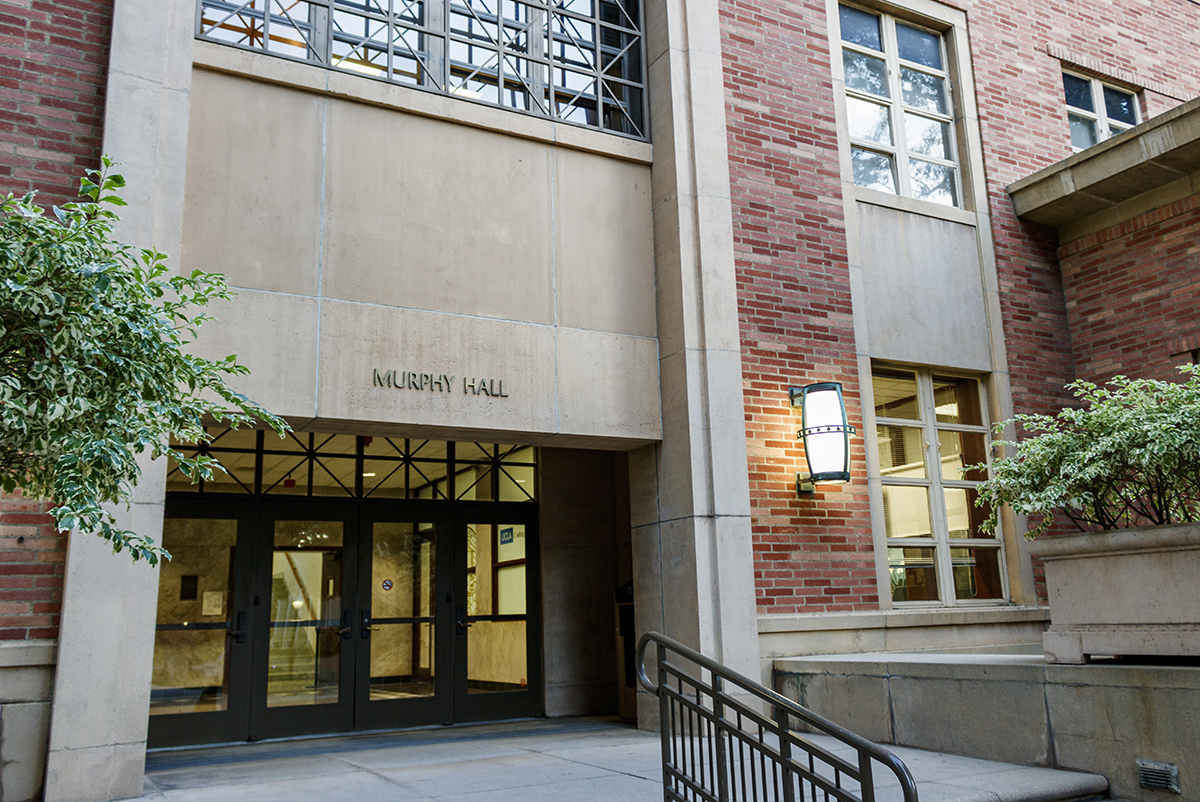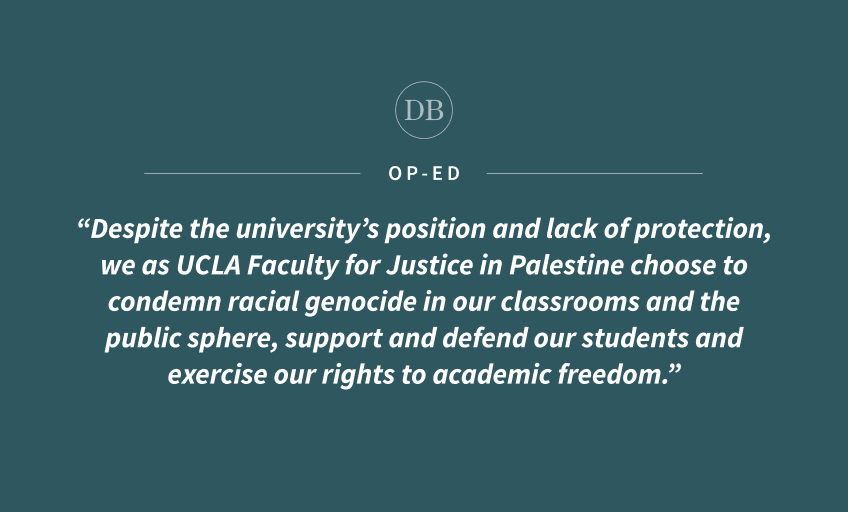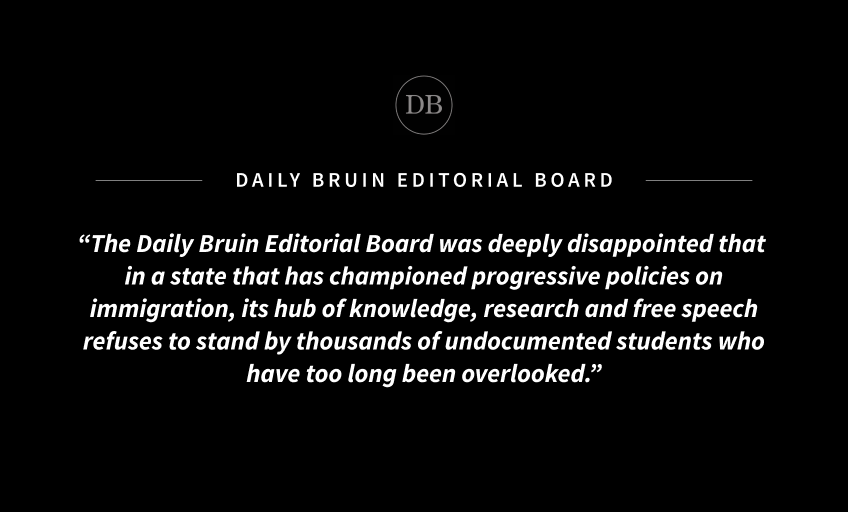Op-ed: UC Regents should vote ‘no’ on policy that threatens academic freedom
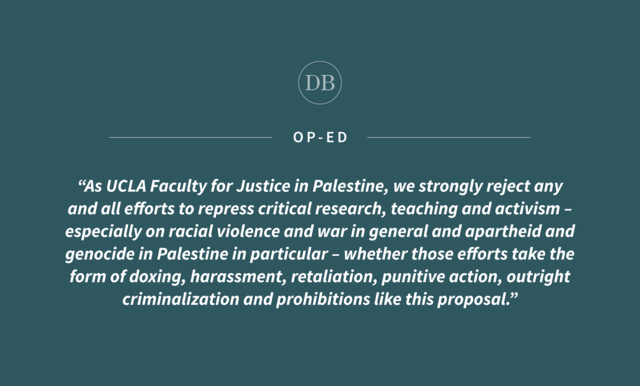
By UCLA Faculty for Justice in Palestine
March 19, 2024 8:25 p.m.
We, UCLA Faculty for Justice in Palestine, write to express our concern over a critical agenda item of the upcoming UC Regents Meeting – which will be held March 20 to 21 – at UCLA’s Luskin Conference Center. On the agenda for this meeting, postponed from Jan. 2024 because of student protest, is what we deem to be a policy that directly threatens academic freedom and makes faculty vulnerable to political retaliation at the University of California.
We are concerned that this proposed policy is part of a broader climate of silencing academia, since academic freedom and faculty safety are already imperiled around the nation by concerted efforts to repress critics of the U.S.-supported Israeli genocidal violence in Gaza.
As stated in the action item from the UC Office of the President, J1 – formerly known as J3 – seeks to enact “a new Regents Policy on the use of university’s administrative websites.” The proposed policy “would provide that the official channels of communication to conduct the business of the University should not be used for purposes of publicly expressing the personal or collective opinions of unit members or of the entity.”
This new policy seems to be responding to advocacy efforts that seek to ban any expression of pro-Palestinian solidarity and that have explicitly targeted ethnic studies departments for doing so.
But who is to decide the distinction between “the business of the University” and the “opinions” of unit members? Who will decide what is “opinion”? Who will enforce it?
We are alarmed that UC administration is proposing to police and limit departmental expressions of “opinion,” even as social scientists have repeatedly documented that the distinction between “opinion” and “fact,” and “political” and “scientific,” are not only highly contentious but are very much dependent upon the whims of whoever is in power in a particular society in a given time and place.
Social science and humanities scholars, especially those in social justice-oriented disciplines such as gender and ethnic studies, are often the first to experience censoring and repression of their knowledge production on the pretense that it is “opinion” and/or “political” as opposed to “scientific” and/or “academic.” But the rest of academia is not immune, as scholars of climate change, COVID-19 or sexual and reproductive health would readily testify.
It is the official business of our departments to amplify the voices of our faculty – individually and collectively – and our broader disciplinary bodies, like national associations, in their task of producing knowledge on contentious issues, often in ways aligned with social justice movements.
Administrative micromanagement and policing of departmental and scholarly activities threaten academic autonomy, integrity and freedom. Unfortunately, this policing is widely used by university administrators in response to pressures from reactionary political groups and authoritarian governments around the world, especially in times of political crises and democratic decline. And it is precisely in these times that universities hold much potential and value as an oasis of free inquiry and expression, coming under political and administrative attacks.
Currently, in the U.S., we have been witnessing a heightened wave of repression as the U.S.-supported Israeli genocidal violence on Gaza brutally intensifies and as universities emerge as hubs of critical knowledge production and are promptly targeted. In this context, this proposed policy seems to have been inspired by a desire to silence speech that criticizes the state of Israel. In other words, ironically this proposal itself seems to be inspired by an “opinion” and deeply political, drawing upon a cynical exploitation of the fight against anti-semitism in order to justify academic repression.
While the question of Palestine seems especially at stake, it is easy to predict that this will soon cascade into many other topics and areas, from sexual and reproductive rights to critical race theory. The effect of the proposed policy on stifling academic freedom and freedom of expression is clear to faculty across disciplines. The Academic Senate’s Academic council voted unanimously against endorsing J1, expressing their own grave reservations based on comments from four UC-wide Academic Senate committees and all 10 Senate divisions.
Today, many of the attackers of academia and social justice movements have joined forces as a part of a massive campaign against universities, against diversity, equity and inclusion initiatives and against ethnic and gender studies departments. Those who want to silence speech on gender equality, racial injustice and the devastating violence which Palestinians are experiencing, unite to condemn as “opinion” and “political” any efforts to speak out about violence and to historically contextualize it. The proposed policy, J1, that the UC Regents will vote whether to implement March 20, if accepted, would become part of such concerted efforts to silence academia and target anyone speaking out against genocide.
As UCLA Faculty for Justice in Palestine, we strongly reject any and all efforts to repress critical research, teaching and activism – especially on racial violence and war in general and apartheid and genocide in Palestine in particular – whether those efforts take the form of doxing, harassment, retaliation, punitive action, outright criminalization and prohibitions like this proposal.
UCLA Faculty for Justice in Palestine is part of a decentralized, national network of affiliated campus chapters whose faculty and staff members support the cause of Palestinian liberation through education, advocacy and action. To contact UCLA Faculty for Justice in Palestine, email [email protected].



